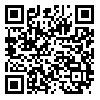Volume 15, Issue 6 (November & December 2024)
BCN 2024, 15(6): 807-818 |
Back to browse issues page
Download citation:
BibTeX | RIS | EndNote | Medlars | ProCite | Reference Manager | RefWorks
Send citation to:



BibTeX | RIS | EndNote | Medlars | ProCite | Reference Manager | RefWorks
Send citation to:
Esmaeili S, Taremian F, Rezaei M, Vousooghi N, Mostafavi H. Comparing the Efficacy of Matrix Therapy, Transcranial Magnetic Stimulation, and Cognitive Rehabilitation in Attention Bias Modification and Craving Reduction in Stimulant Drug Users. BCN 2024; 15 (6) :807-818
URL: http://bcn.iums.ac.ir/article-1-2090-en.html
URL: http://bcn.iums.ac.ir/article-1-2090-en.html
1- Department of Clinical Psychology and Addiction Studies, School of Medicine, Zanjan University of Medical Sciences, Zanjan, Iran.
2- Department of Neuroscience and Addiction Studies, School of Advanced Technologies in Medicine, Tehran University of Medical Sciences, Tehran, Iran.
3- Department of Physiology, School of Medicine, Zanjan University of Medical Sciences, Zanjan, Iran.
2- Department of Neuroscience and Addiction Studies, School of Advanced Technologies in Medicine, Tehran University of Medical Sciences, Tehran, Iran.
3- Department of Physiology, School of Medicine, Zanjan University of Medical Sciences, Zanjan, Iran.
Abstract:
Introduction: Previous studies have shown that matrix, repetitive transcranial magnetic stimulation (rTMS), and cognitive modification treatments could create numerous psychological improvements in patients suffering from substance use disorders. Previous research has shown that other therapeutic interventions could be useful in managing stimulant abuse in addition to matrix treatment. The present study compared the effectiveness of matrix therapy, transcranial magnetic stimulation (TMS), and cognitive rehabilitation treatments in attention bias modification and craving reduction in amphetamine drug users.
Methods: This study was quasi-experimental with a pre-test-post-test and a 3-month follow-up design. Forty subjects taking amphetamine were selected by convenient sampling and were randomly divided into three groups: Matrix therapy, cognitive rehabilitation, and rTMS as intervention groups. There is also a control group (10 subjects in each group). The matrix group received 24 treatment sessions, 3 sessions per week, and the cognitive rehabilitation group received 15 treatment sessions (3 sessions per week). The group with rTMS treatment participated in 10 sessions every other day. Questionnaires and dot-probe tasks were performed as the cognitive software before and after the therapeutic interventions and one month after the interventions as a follow-up test.
Results: The results showed that the effect of time on craving assessment in three stages was significant in all study groups. In the experimental groups of matrix, rTMS, and cognitive rehabilitation, the effect of time on the severity of addiction dependence and attentional bias was significantly different in three stages. In the control group, the effect of time in three stages of assessment of addiction severity and attention bias was not significant. Also, there was a significant decrease in the mean craving in matrix, rTMS, and cognitive rehabilitation groups from pre-test to post-test and pre-test to follow-up stages. The mean addiction severity was significantly decreased from the pre-test to the post-test and from the pre-test to the follow-up stage in the Matrix, rTMS, and cognitive rehabilitation groups.
Conclusion: The current study’s findings indicated that all three interventions effectively reduced amphetamine craving and attentional bias. All three approaches produced positive therapeutic outcomes.
Methods: This study was quasi-experimental with a pre-test-post-test and a 3-month follow-up design. Forty subjects taking amphetamine were selected by convenient sampling and were randomly divided into three groups: Matrix therapy, cognitive rehabilitation, and rTMS as intervention groups. There is also a control group (10 subjects in each group). The matrix group received 24 treatment sessions, 3 sessions per week, and the cognitive rehabilitation group received 15 treatment sessions (3 sessions per week). The group with rTMS treatment participated in 10 sessions every other day. Questionnaires and dot-probe tasks were performed as the cognitive software before and after the therapeutic interventions and one month after the interventions as a follow-up test.
Results: The results showed that the effect of time on craving assessment in three stages was significant in all study groups. In the experimental groups of matrix, rTMS, and cognitive rehabilitation, the effect of time on the severity of addiction dependence and attentional bias was significantly different in three stages. In the control group, the effect of time in three stages of assessment of addiction severity and attention bias was not significant. Also, there was a significant decrease in the mean craving in matrix, rTMS, and cognitive rehabilitation groups from pre-test to post-test and pre-test to follow-up stages. The mean addiction severity was significantly decreased from the pre-test to the post-test and from the pre-test to the follow-up stage in the Matrix, rTMS, and cognitive rehabilitation groups.
Conclusion: The current study’s findings indicated that all three interventions effectively reduced amphetamine craving and attentional bias. All three approaches produced positive therapeutic outcomes.
Type of Study: Original |
Subject:
Cognitive Neuroscience
Received: 2021/02/4 | Accepted: 2021/07/24 | Published: 2024/11/1
Received: 2021/02/4 | Accepted: 2021/07/24 | Published: 2024/11/1
Send email to the article author
| Rights and permissions | |
 |
This work is licensed under a Creative Commons Attribution-NonCommercial 4.0 International License. |








